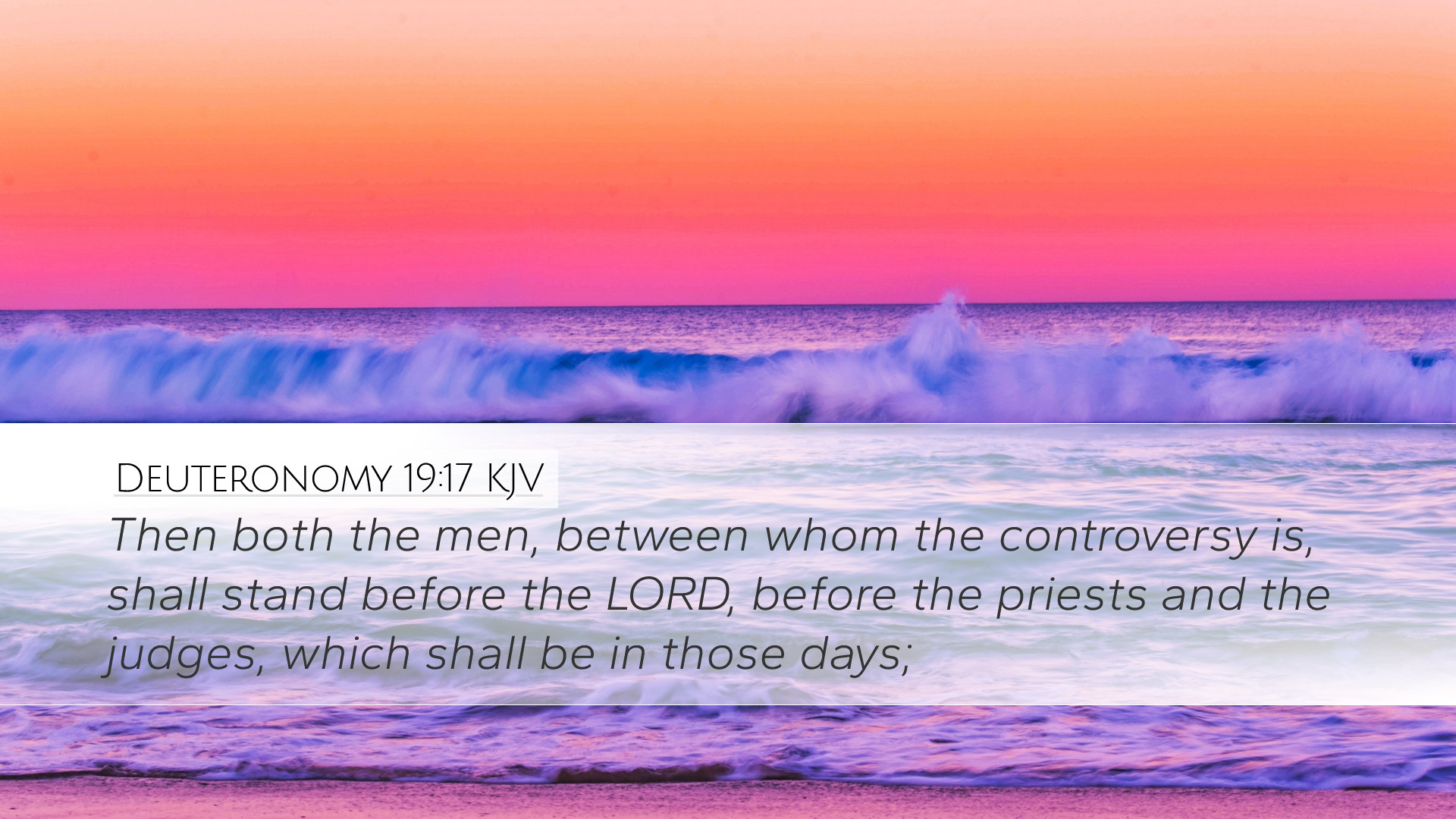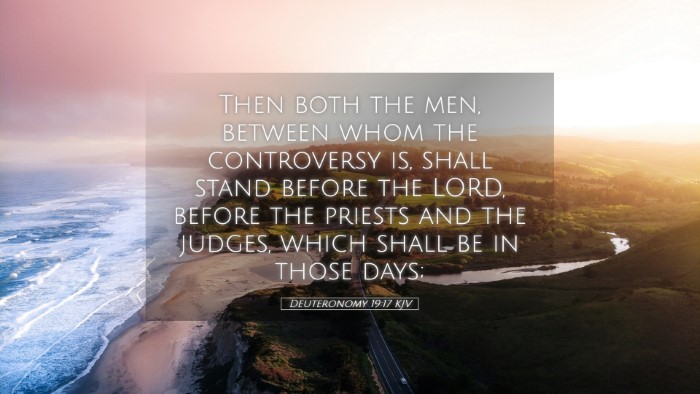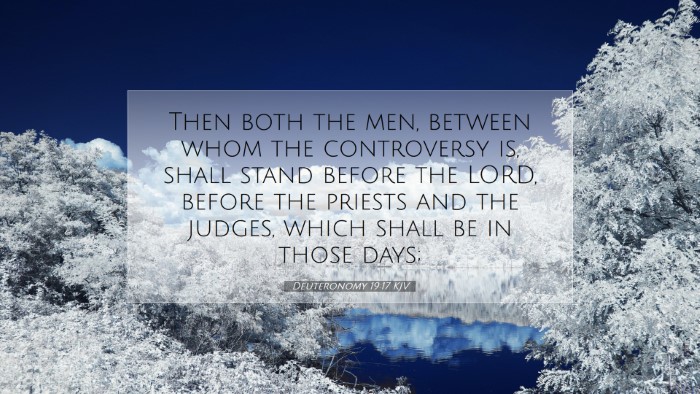Commentary on Deuteronomy 19:17
Bible Verse: "Then both the men, between whom the controversy is, shall stand before the LORD, before the priests and the judges, which shall be in those days."
Introduction
The verse in Deuteronomy 19:17 is a pivotal point in the legal and ethical framework that God established for the nation of Israel. This verse reflects the importance of justice, the role of the leaders, and the adherence to divine law. It illustrates the procedures to be followed in disputes, emphasizing the communal aspect of justice and the necessity for divine oversight.
Key Themes
- The Divine Order of Justice
- The Role of Priests and Judges
- Importance of Witnesses and Evidence
- Collective Responsibility in Judicial Matters
The Divine Order of Justice
Matthew Henry emphasizes that the instruction to stand before the LORD signifies that all judicial matters should ultimately be directed by divine authority. In this context, the divine presence acts as a reminder that justice is not merely a human endeavor; rather, it possesses a sacred dimension. The involvement of the Lord in legal matters indicates the seriousness with which disputes should be addressed, highlighting that moral consequences accompany every decision made within the judicial system.
Albert Barnes also connects this verse to God's requirement for fairness among His people. The judicial process is intended to reflect God's nature—just, merciful, and true. His commentary illustrates that the judicial proceedings must be conducted with utmost integrity to avoid the perversion of justice, which is a serious transgression in the eyes of God.
The Role of Priests and Judges
According to Adam Clarke, the priests and judges serve as mediators in the process, tasked with discerning truth and applying the law appropriately. The verse underlines the necessity for qualified individuals to handle disputes, as they are endowed with the knowledge and authority to interpret the law. Clarke further posits that it is significant that both priests and judges are mentioned; this suggests a collaborative effort in promoting holy justice, intertwining spiritual and secular authority.
Importance of Witnesses and Evidence
Contextual Analysis: The arrangement highlights the principle that judicial proceedings should not be arbitrary or without evidence. The presence of witnesses is crucial, as established in earlier chapters of Deuteronomy. Matthew Henry notes that for a just resolution to occur, there needs to be clarity regarding the accusations. The procedure emphasizes gathering credible testimonies to ensure that judgments are rendered based on established facts and not mere speculation.
Theological Implications: This principle remains relevant today, as it contributes significantly to contemporary legal systems. The biblical insistence on evidence and the careful consideration of all parties involved is a foundational aspect of justice that transcends culture and time.
Collective Responsibility in Judicial Matters
Both Barnes and Clarke highlight the communal aspect of the judicial system outlined in this verse. The collective nature of the process is evident—the participants in a dispute are called to present their cases in front of an authority that represents the people as well as God. This coordination ensures accountability and provides a system where the community as a whole can understand and respect the judgment rendered.
Matthew Henry elaborates on the implications of mutual accountability, suggesting that it fosters a community consciousness of morality and justice. Such structures encourage individuals to act righteously, knowing that their actions will ultimately be inspected and judged by both divine and communal standards.
Conclusion
Deuteronomy 19:17 instructs us on the sacred duty of upholding justice and the necessity of doing so in the presence of God. The combination of spiritual and judicial authority provides a framework that prioritizes integrity and truth. The insights gained from the public domain commentaries enhance our understanding of how this verse serves as a guiding principle in both ancient and contemporary contexts concerning the adjudication of disputes.
As we reflect on this passage, it invites pastors, students, and theologians to consider the profound impact of justice in the community, our responsibilities to uphold it, and the ultimate divine authority that governs all our actions in this sacred endeavor.


